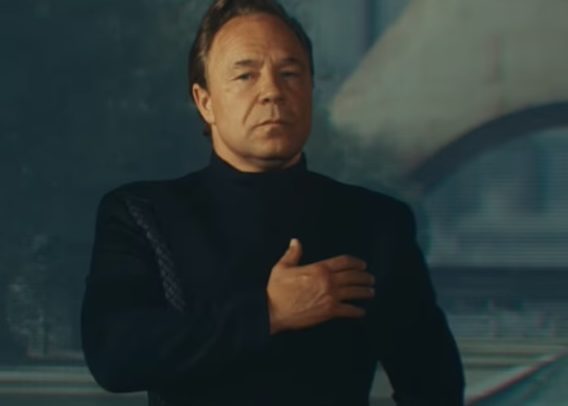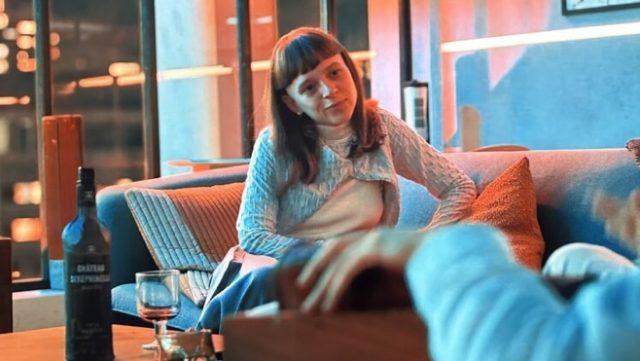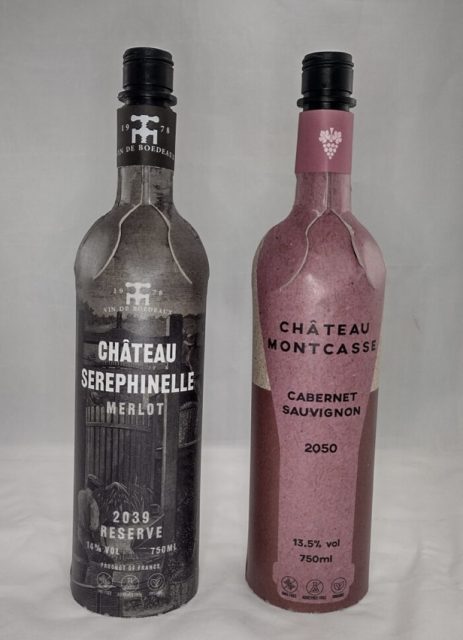This website uses cookies so that we can provide you with the best user experience possible. Cookie information is stored in your browser and performs functions such as recognising you when you return to our website and helping our team to understand which sections of the website you find most interesting and useful.
Does Netflix drama Bodies secretly predict the future of wine?
Eagle-eyed viewers of hit drama Bodies may have spotted that the nail-biting series offers some telling predictions about where the wine industry will be in 30 years time.

Anyone who has binge-watched Bodies, starring Stephen Graham, will be eerily familiar with the phrase: “Know you are loved”.
However, the edge-of-your-seat Netflix drama can also be seen to communicate a message of subliminal love to the wine trade by hinting at its longevity, despite the many challenges faced by wine producers at present.
While climate change has led to some bleak predictions for wine producing regions in the coming years, episode four of Bodies offers a possible blueprint for what winemakers should focus on if they want to be around for decades to come.
The gripping television series explores four identical dead bodies that turn up in the same location (Longharvest Lane in Whitechapel, East London), with matching injuries in the years 1890, 1941, 2023 and 2058.
Discovered by four police inspectors across the different time periods, each must get to the bottom of the mystery, within their own era, of why the same victim keeps turning up dead.
One scene set in 2058 shows characters Iris Maplewood and Gabriel Defoe enjoying a bottle of wine together while policewoman Maplewood hides Defoe from his enemies in her futuristic flat, with breathtaking views of London’s Tower Bridge.
“It’s French and organic, and soon we might all be dead,” says Defoe persuasively while opening the bottle.
Given that France has just experienced one of its most challenging harvests yet, with a helpline set up to counsel traumatised growers hit by a devastating attack of mildew, the TV programme’s choice of wine 35 years from now appears to be a show of confidence in the French wine industry’s future. A nod that says, “hang in there, you can survive the storm”.
Earlier this year, a statement by the Chamber of Agriculture Gironde issued a prognosis of the 2023 harvest, saying that “no one had been spared” and that some winegrowers had “lost everything already.” The trade body added that it had “never seen anything like this.”

Message in a bottle
The bottle of wine that Maplewood and Defoe share in episode four of Bodies is, importantly, made from paper rather than glass, implying that the sustainable packaging route already being explored today by brands such as Avallen and When in Rome may become the norm in the future.
Leading paper bottle manufacturer Frugalpac revealed it was approached by Moonage Pictures, the production team for Bodies, in July 2022 after the team had seen media coverage of the paper bottles, which are now used by more than 35 drinks brands around the world.
Frugalpac created two paper bottles specifically for the scene, with the vintages listed on the label looking far ahead into the future: a Château Montcasse Cabernet Sauvignon 2050, and a Château Serephinelle Merlot 2039 Reserve.

Having the bottles visibly displayed on the table in the scene could be seen as a message of encouragement for those producers already experimenting with alternative packaging for their wines. A hint to keep going because glass is yesterday’s news.
Earlier this year, the drinks business reported that Frugalpac CEO Malcom Waugh had given Queen Camilla a ‘Cardbordeaux’ bottle of wine during a royal visit to France. Made from 94% recycled cardboard, the bottle is said to be five times lighter than a traditional glass bottle.
Furthermore, Italian wine producer Cantina Goccia, the first drinks brand to release a wine in a paper bottle, opened a dedicated filling service in January 2023 to help other wine producers make the switch from glass to paper. The purpose-built filling machine exclusively for paper bottles is based in Umbria and will initially fill 1,000 bottles per hour with plans to double capacity in the future.
External factors
As well as suggesting that an organic approach and alternative packaging strategy could benefit producers, fictional Bodies character Gabriel Defoe also explains that our experience of enjoying a glass of wine is influenced by a number of external factors, many of which are outside our conscious control.
He reels off a long list to Maplewood of things that can determine how much we enjoy a particular wine, including “the temperature of the room, the mood you’re in when you drink it, and the person you drink it with.”
“My point is,” he says. “Free will does not exist. It’s an illusion and a pleasant one.”
In 2011, a study by researcher Adrian North tested the taste perceptions of 250 university students as they drank either Montes Alpha 2006 Cabernet Sauvignon or Montes Chardonnay while listening to various genres of music. The results showed that the drinkers’ assessments of wines changed depending on the music they listened to while imbibing.
Similarly, a series of Chateaux Noir events, staged for consumers by discount retailer Lidl in October 2023, aimed to ‘democratise’ wine through conducting tastings in total darkness. By taking away sight, Lidl hoped customers would identify wines they loved “away from preconceptions of bottle design, labels, colour or price,” the retailer said.
As artificial intelligence (AI) and virtual reality (VR) become increasingly sophisticated, consumers may in future be able to cherry-pick from a menu of ways to alter their sensory experience depending on how they want to feel while drinking wine. Likewise, brands and retailers could use such tools to boost sales.
It is not yet known whether a sequel to Bodies is on the cards.

